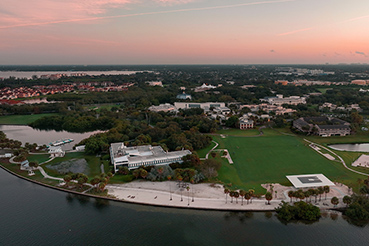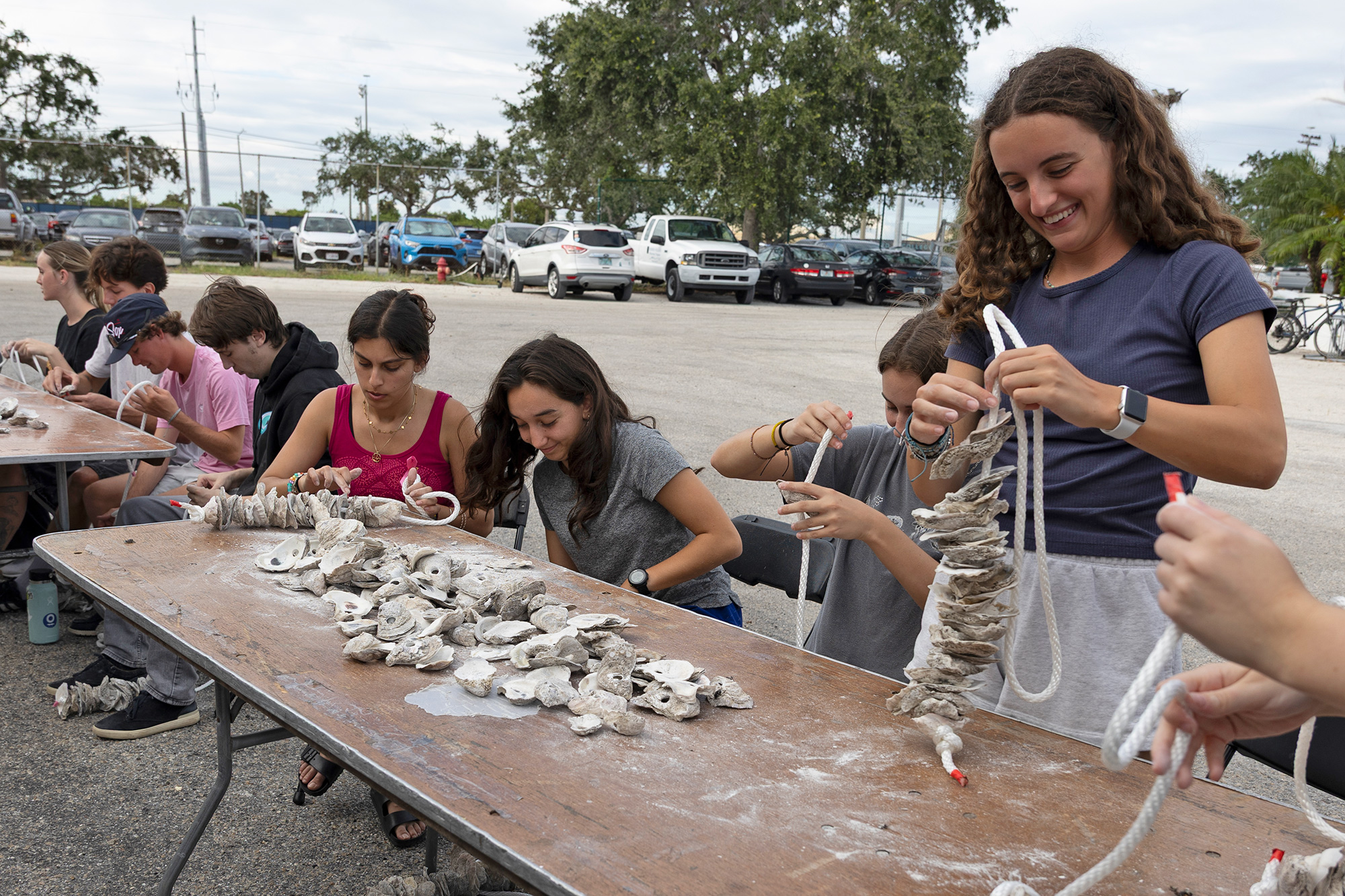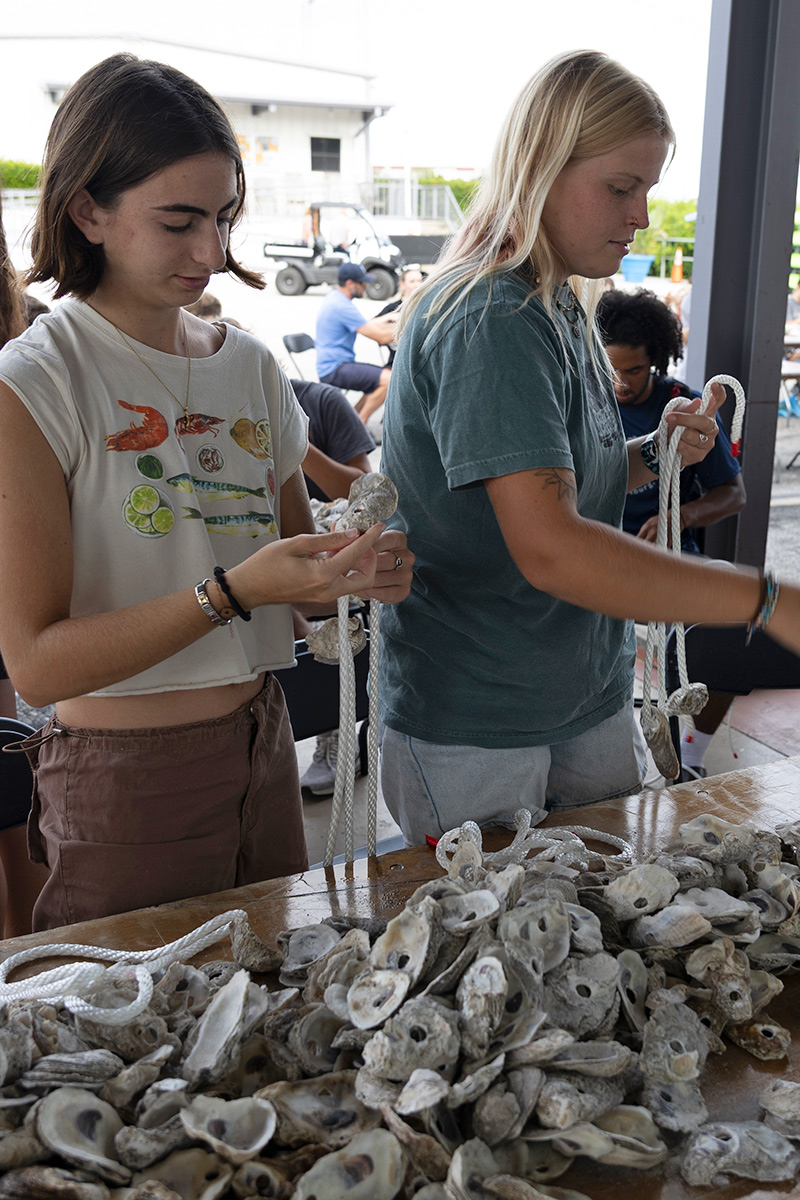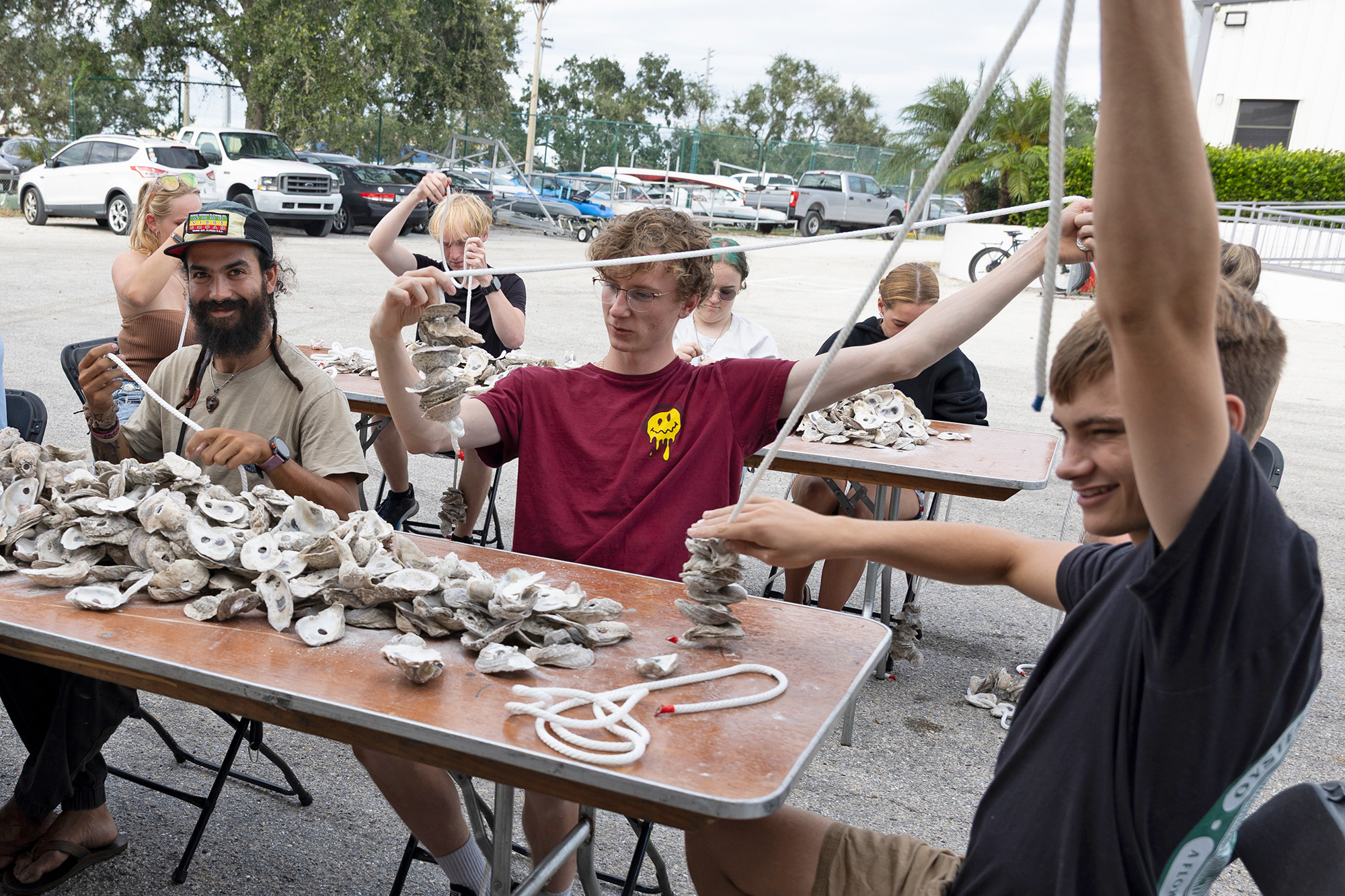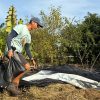Cassidy Taylor ’25 had a dream deferred her senior year at Eckerd College, but her perseverance made it a reality on Oct. 15.
Nearly 80 students, faculty and staff came to the Waterfront for a vertical oyster garden building event co-sponsored by Tampa Bay Watch, the Gulf Scholars Program and the Office of Advancement. Attendees were asked to thread oyster shells onto knotted rope and hang the assemblages from docks across campus. The gardens attract small oysters to nest in communities—a manmade habitat—and act as natural filters for the waterways.
Taylor, an animal studies and human development grad who now works as an alumni engagement and annual giving associate for the College, watched proudly as all she’d worked for came to fruition. A year ago, she had invited Reagan Fenessey ’21, coordinator for Tampa Bay Watch’s Oyster Shell Recycling Program, to come and host a College Program Series event on campus to install the gardens. Back-to-back storms delayed the event and construction needs canceled it altogether. Taylor completed her internship at Tampa Bay Watch, took her first job at Eckerd and sensed an opportunity.
“I’m very happy with my little senior dream,” she explained. “This event is helping to educate the students and it coincides with the living shoreline work that has been done. It’s a really great practice to have.”
Animal Studies Instructor and Director of the Gulf Scholars Program Amanda Hagood, Ph.D., said the partnership was a no-brainer. “When Cassidy came to the Gulf Scholars and asked if we’d be interested in partnering on the event, we said absolutely. It is beautifully aligned with our program’s priorities. This sort of work demonstrates the kind of problem solving that can be done to improve water quality and coastal resiliency.”
As students snacked on popcorn and snocones, Fennessey explained the project.
“Think of oysters as a natural Brita filter,” she quipped.
When oysters are thriving on reefs, they act as a shelter, food source and natural water filter. A single oyster can filter 50 gallons of water per day, Fennessey said. Reefs also prevent shoreline erosion by disrupting wave energy before it reaches land—particularly during hurricanes and other severe storms.
There has been a 90% loss of oyster reef in Tampa Bay Estuary. Tampa Bay Watch works with community partners on interventions including living shorelines, but those projects are subject to funding and city permitting so they can take years. A vertical oyster garden can be completed in as little as three months. TBW collected 200,000 pounds of oyster shells from restaurants across the country. After a sterilization process that includes three months of sitting in the sun to bleach, the non-profit drills holes to prepare the shells for their new lives as an oyster garden.
“Think of it as building a friendship bracelet for the ocean,” she said, bringing the point home.
When Tritons completed their 112 “friendship bracelets,” they immediately went to hang them from docks at the Waterfront, Lewis House and the dock near Kappa residence complex.
Myles de Szendeffy, a first-year student from Sharon, Massachusetts, enjoyed the speed at which he could make a positive impact, but also the opportunity to further his career. “I came because I wanted to make connections with Tampa Bay Watch,” he said.
Melia Paat, a sophomore environmental studies and visual arts student from Lithia, Florida, was surprised this was her first time hearing of such a project. “This was very cool and super easy. If more people knew about it, everyone would do it,” she added.

